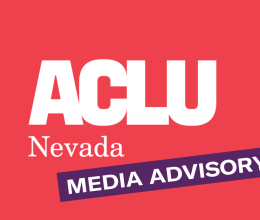Imagine you just walked into a murder trial. The prosecution has called up its expert witness to testify about the DNA evidence at the center of the case.
“Using the Magic Wand 3000 and its trade secret technology, we were able to calculate that the DNA evidence from the crime scene is 1 trillion times more likely if it contains Mr. Smith’s DNA than if it does not.”
Wait, did you hear that correctly? What do they mean the evidence is “likely”? And one trillion times more likely? Also, they used something called Magic Wand 3000?
The witness directs his next comment to the jury.
“You can rest assured that the Magic Wand 3000 works and is very accurate.”
You wait expectantly for the defendant’s lawyer to cross-examine the witness and ask all the obvious questions that arise: What technology does this Magic Wand use? How does it even work? How does the expert witness know it’s so accurate?
But the judge doesn’t even allow those questions, ruling that the makers of the Magic Wand 3000 have a right not to answer questions about the details of their technology because that would reveal their “trade secrets.” This leaves your questions unanswered — and a defendant potentially facing conviction based on a private company’s word.
Despite the seeming absurdity of this fictional case, if you replace “Magic Wand 3000” with real DNA algorithms like “STRmix” and “TrueAllele,” this is a dilemma many defendants really face. These programs claim to be able to identify a suspect from a pool of several individuals’ DNA. However, the way they work is not transparent to the public or even to those accused of crimes based on their results. Government agencies and the private businesses that have developed and sold programs like STRmix and TrueAllele argue that crucial details about their operation and accuracy are trade secrets they cannot be forced to release, and courts across the country have been agreeing.
But such claims cannot outweigh the constitutional rights of defendants to a fair and public trial. If defendants can’t properly confront the witnesses and evidence against them, their right to due process as guaranteed by the Sixth Amendment has been violated. Denying the public access to essential evidence in a criminal trial is also a violation of defendants’ right to a public trial.
Fortunately, there has been a promising development going against the trend of recent court rulings. In October 2017, a California trial judge rightly recognized these problems. Ruling in the case of Florencio Jose Dominguez, a man accused of murder, the judge ordered that the state disclose to the defense information about STRmix, including the program’s source code, internal validation studies, user manuals, and more. The state has appealed the order, and this week the ACLU filed a friend-of-the-court brief arguing that the trial court made the right call. An assortment of other public-interest groups filed briefs as well.
DNA results have been a critical and contentious part of Dominguez’s case for years. Prosecutors have already tried him twice for the same crime he is currently being accused of, and in both trials, DNA evidence was a central piece of the government’s case. While the first trial ended with a hung jury, the second trial featured the crime lab reanalyzing the DNA evidence and an expert witness testifying about the results. That trial ended with a conviction, but after it came to light that the crime lab issued new guidelines under which the DNA results were inconclusive — five days before the expert testified — Dominguez was granted a third trial. This time, the lab used the STRmix algorithm to test the crime scene DNA.
Dominguez can only receive a fair trial if he is given the chance to understand how this algorithm works.
DNA algorithms are not inherently good or bad, but they can be flawed — often in complex ways. And defendants, experts, and other members of the public must have the ability to identify those flaws. Claims of “trade secrets” cannot and do not outweigh individuals’ constitutional rights, and we’ll continue advocating for courts to make the right call in cases like this one.







